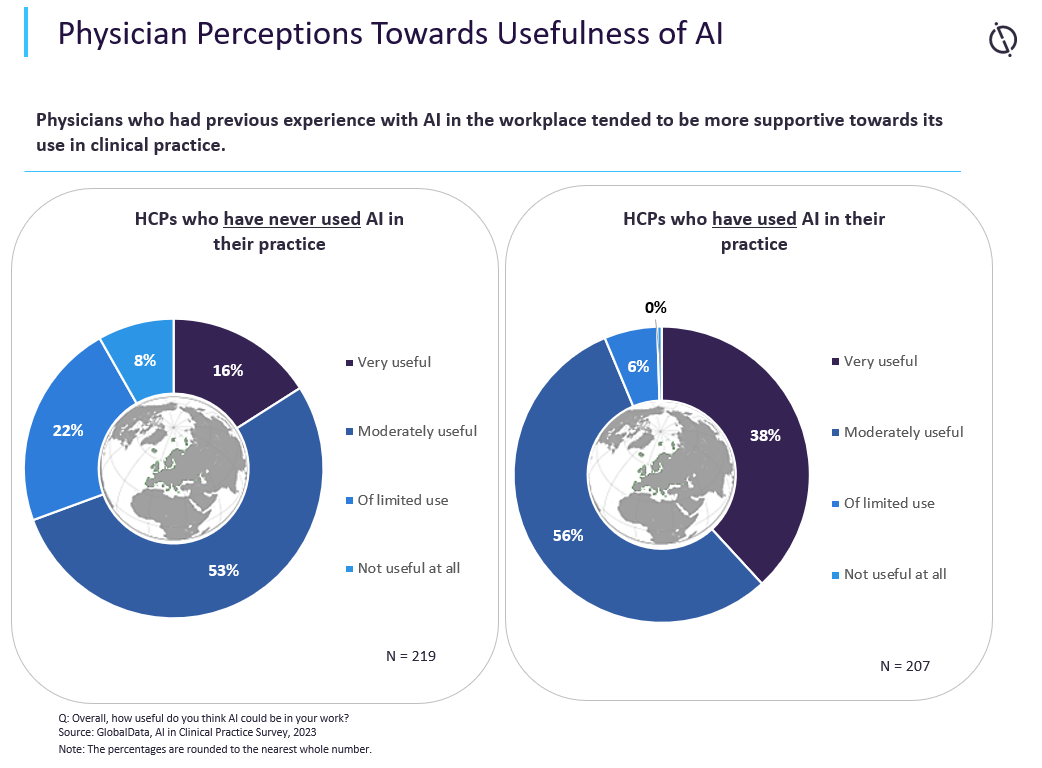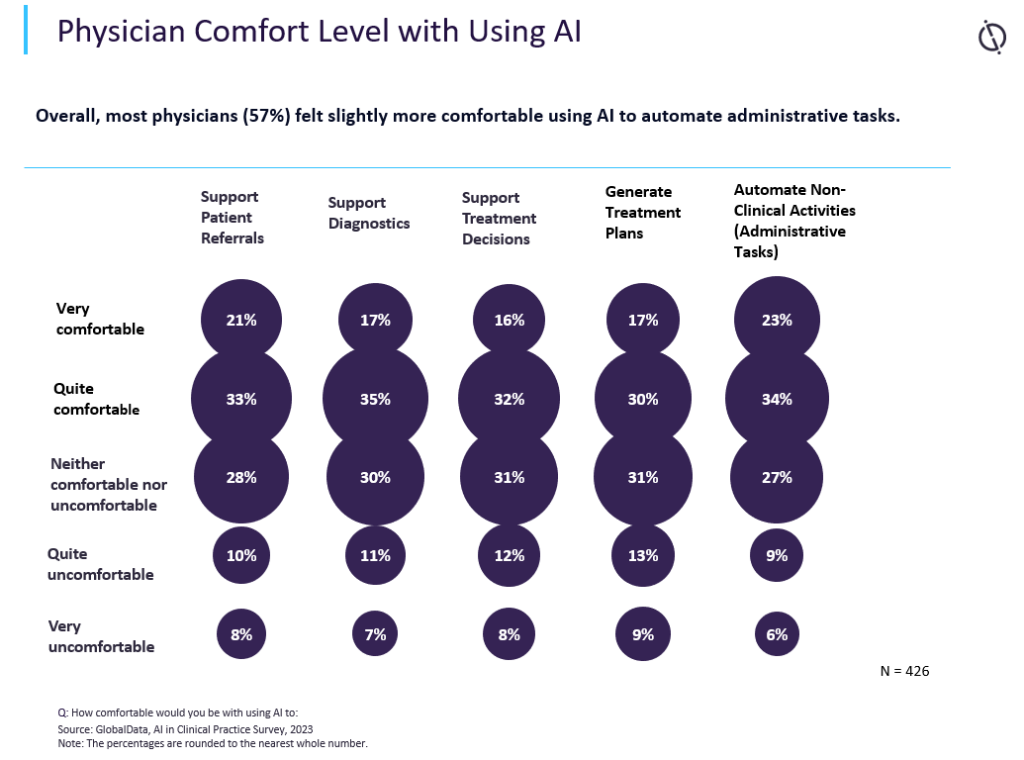
There is an undeniable need to create innovative strategies to address healthcare needs for future generations. The ageing population, increasing prevalence of chronic disease, workforce shortages, healthcare underfunding, advances in science, and an increasing amount of information make artificial intelligence (AI) stand out as a promising solution to improve the provision of healthcare.
A recent GlobalData survey-based report, AI in Clinical Practice – Physician Perspective 2023, revealed that healthcare professionals (HCPs) who had previous experience with AI were more supportive towards the use of the technology in clinical practice. However, HCPs who had never used AI before were more sceptical about the improvements that AI could bring. Nevertheless, both groups of physicians were overall positive about AI improving their work (Figure 1).
Since AI is still in the early stages of adoption, the extent to which AI could be perceived as beneficial or as concerning differed greatly according to its specific use. Even though approximately 50% of surveyed physicians felt comfortable using AI for activities such as patient referrals, diagnostics, treatment plan generation, or treatment decision support, the highest proportion of respondents (57%) felt slightly more comfortable using AI to automate administrative tasks (Figure 2).

Even though there are many examples showing that AI can perform some healthcare tasks with better accuracy than humans, such as in diagnostic medical imaging, its full-scale implementation and physicians’ trust in the technology will require time. For example, there may be concerns about who would be held liable for any detrimental outcomes, such as adverse events due to an AI system error. No technology is perfect, and any deployment of AI tools in the healthcare setting will require rigorous testing so that HCPs can rely on the technology without the need for continuous validation and checks.
AI can bring enormous benefits to healthcare systems that are often criticized as being costly, outdated, and lacking consistency in service delivery. However, while AI continues its rapid development, regulatory frameworks need to catch up. AI needs to be ethical, transparent, and unbiased to fulfil a promise for more sustainable and effective future healthcare.
